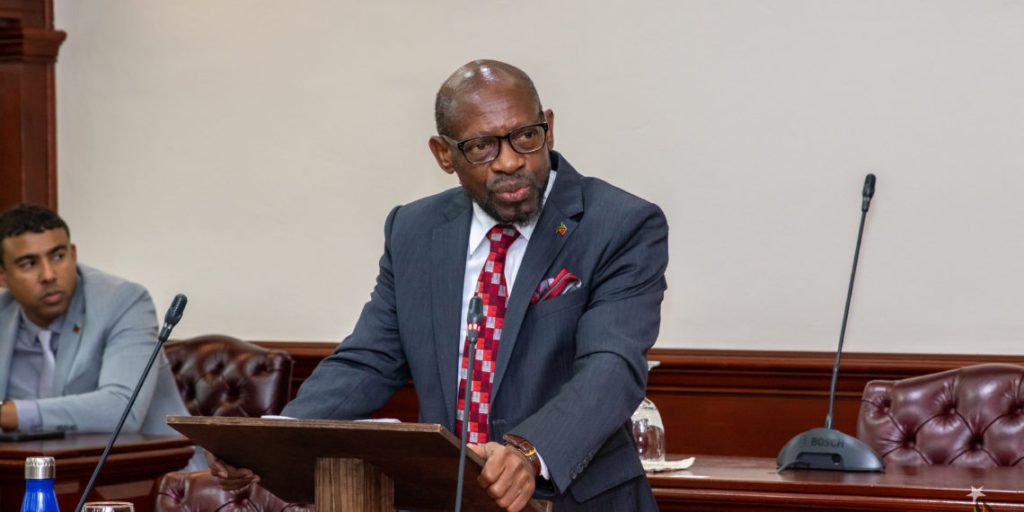Dr. Douglas Underscores the Historical Significance and International Implications of the 2025 Extradition Bill
The Extradition Bill of 2025, a landmark piece of legislation in Saint Kitts and Nevis, has been lauded by Senior Minister and Minister of Foreign Affairs, the Right Honourable Dr. Denzil Douglas, for its comprehensive approach to modernizing the Federation’s extradition processes and aligning them with international standards. Drawing on his extensive experience as a former prime minister, Dr. Douglas emphasized the bill’s critical role in clarifying previously ambiguous colonial-era frameworks, thereby strengthening the nation’s legal standing and commitment to justice within the global community.
Dr. Douglas underscored the bill’s comprehensive nature, highlighting its importance in keeping Saint Kitts and Nevis in step with the expectations placed upon modern states within the international legal landscape. The legislation provides much-needed clarity and structure to extradition procedures, moving away from the uncertainties of past practices and establishing a robust and transparent system that upholds the principles of due process and individual rights. This reinforces the Federation’s commitment to fulfilling its international obligations while simultaneously asserting its sovereignty as an independent nation.
A core principle embedded within the bill is the requirement for evidence-based extradition requests, ensuring fairness and protecting individual rights. This provision mandates that any extradition request, whether originating from or directed towards Saint Kitts and Nevis, must be substantiated by credible evidence and adhere to established legal procedures. This shields individuals from arbitrary extradition and guarantees that the principles of justice are consistently applied, both domestically and internationally. Dr. Douglas stressed that no individual will be extradited from the Federation without due process being meticulously followed, reinforcing the government’s commitment to upholding fundamental legal rights.
The bill’s reciprocal nature was also emphasized by Dr. Douglas. It recognizes the dual role of Saint Kitts and Nevis as both a requester and recipient of extradition requests. This underscores the importance of the Federation operating within a framework of mutual respect with other nations, adhering to its own laws while expecting reciprocal adherence from other countries. This reciprocal framework promotes international cooperation in combating crime and ensuring justice is served across borders. The bill reinforces the principle that Saint Kitts and Nevis will act in accordance with its laws, setting a standard for other nations to follow when engaging in extradition proceedings with the Federation.
The implications of the Extradition Bill extend beyond the legal realm, significantly impacting the nation’s international reputation. By establishing a clear and transparent extradition process, Saint Kitts and Nevis demonstrates its commitment to upholding the rule of law and cooperating with the international community in matters of justice. This strengthens the Federation’s standing on the global stage, fostering trust and cooperation with other nations and reinforcing its image as a responsible and law-abiding member of the international community.
Dr. Douglas concluded by urging citizens to appreciate the gravity of the Extradition Bill of 2025, emphasizing its far-reaching impact on both domestic and international justice systems. He highlighted the bill as a testament to the nation’s dedication to legal principles and its commitment to contributing to a just and equitable global order. The bill stands as a crucial step in modernizing the Federation’s legal framework, promoting international cooperation, and solidifying Saint Kitts and Nevis’ reputation as a responsible and law-abiding member of the international community.
Share this content:












Post Comment